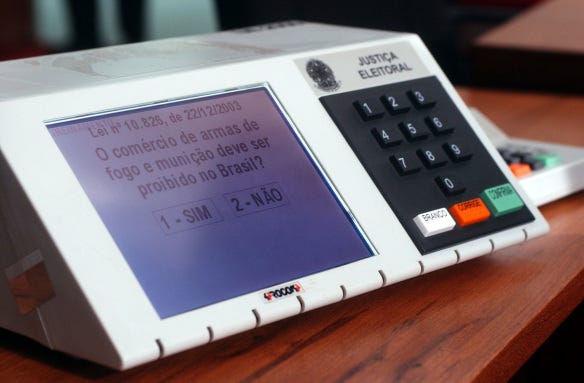Voting is mandatory for everyone over the age of 18 and under the age of 70.
Brazil holds elections on a Sunday in October every two years. This year, every municipality voted for the city council and mayor. In 2022 each state will vote for state deputies, congress members, senators, governors, and the president. Get it?
Brazil uses two different systems - majority and proportional - to define the election winners depending on the office being elected. All Executive positions (the president, governors, and mayors) and Senate races are decided according to the majority system, in which the candidate with the most votes wins. Deputies and councilpersons follow a proportional system. Votes do not go to the candidates only, but to their parties or coalitions as well. Therefore, the election of a deputy also depends on the votes obtained by all candidates from his party/coalition.
City council and state deputy members do not represent a determined physical geography in their city.
There are 33 official parties in Brazil, and they range the spectrum from far left (PSOL and PCdoB), Center-Left (Lula's Worker's Party), Center Right (PSB, MDB, Republicanos) to far-right (Avante, NOVO). In general, Black people are members of all of these parties. Conscious Black people who fight for policies that will benefit Brazil's Black and poor gravitate to the PSOL, PT and PCdoB parties.
No posts



